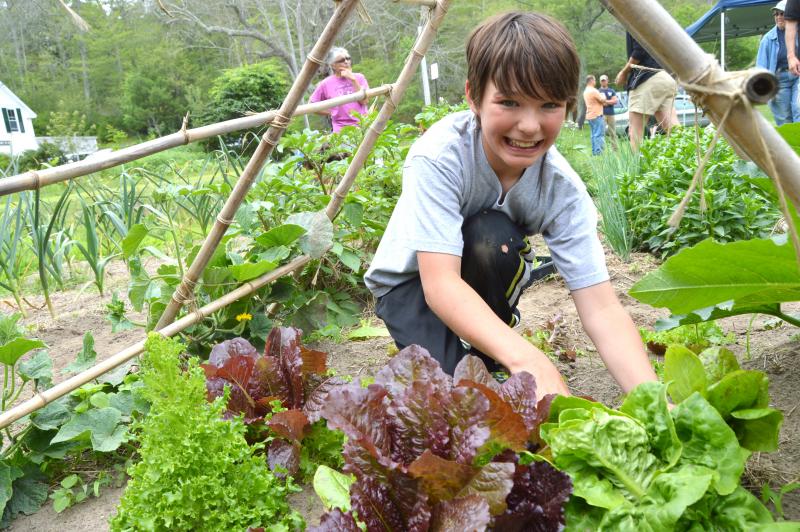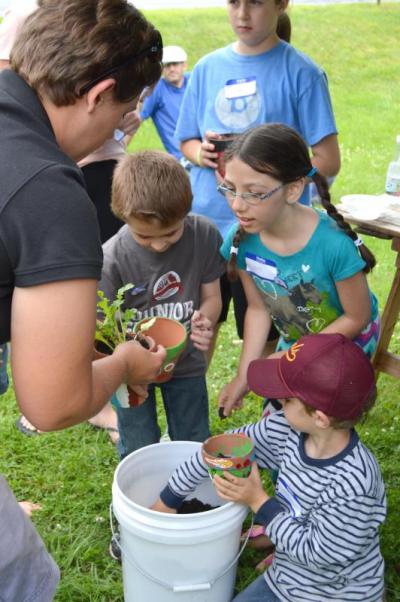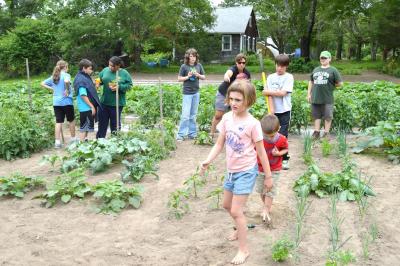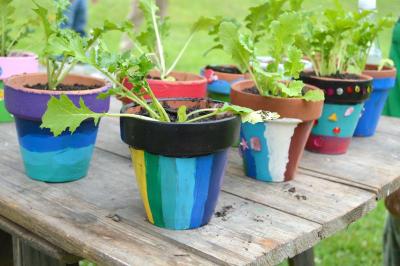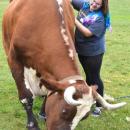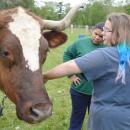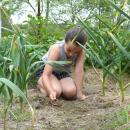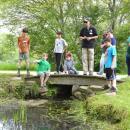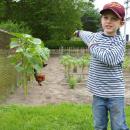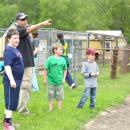Junior Grangers learn from the land
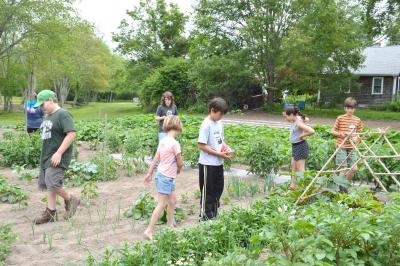
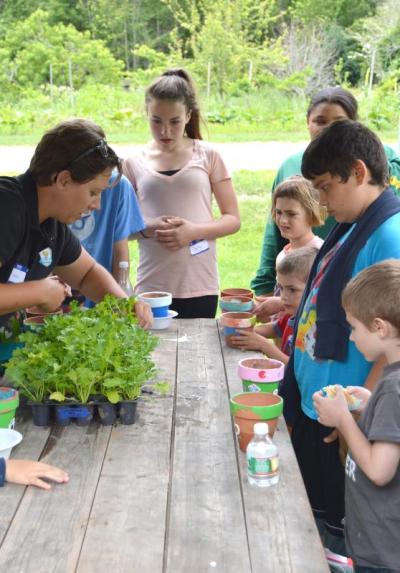
A group of about 20 kids gathered at the Dartmouth Grange and spent their Saturday having fun without a cellphone, handheld video game or television in sight.
Junior Grange Day, held at the Grange Hall on Fisher Road, brought together three of Masschusetts’ eight Granges. Members came from Dartmouth, Upton and New Orange.
The morning began with an annual meeting, where kids were officially inducted into the group and learned about the organization’s traditions. Afterward, the kids moved outside for crafts, a tour of Alderbrook Farm and a trip to the Junior Grange’s own vegetable garden.
Formed in 1954, Dartmouth’s Junior Grange program ended in the late ‘60s. The program returned last year to provide a learning experience for local youths between the ages of five and 14.
“Our focus is agriculture, youth leadership and community service. We center our activities and meetings on those three focuses,” said Sarah Cogswell, a coordinator for Junior Grange #104.
At meetings, kids learn public speaking skills and are given responsibilities. They’re also given a platform to pitch ideas to the group.
“For example, one child wants to plant grapes, so they voted, and they said yes,” said Cogswell. “Another person suggested purchasing phlox, which is a creeping flower, and we’re going to plant it to beautify the retaining wall.”
At Dartmouth’s Grange, youth members tend to a garden every Saturday morning during the growing season. The patch of land was donated by the nearby Alderbrook Farm, and the produce the kids grow is sold at the farm’s store.
“It’s nice because there’s a lot of lessons with the garden plot that the kids get to learn. In addition to sustainable agriculture, they’re learning a bit about business by selling to Alderbrook and keeping track of money. Then the kids get to decide what we do with [the money],” said Cogswell.
The Grange is a national fraternal organization that formed after the Civil War to advocate for farmers.
“As with any war, the land was devastated,” said Junior Grange Committee Director Kathleen Gibson. “Farmers weren’t being treated right. The government was taxing them a lot. The railroad was coming through, taking up property. So they created a group where they could have a bigger voice.”
Initially the group was modeled after the Freemasons, operating in secret to prevent interference from the government. Today the group is still focused on agriculture, but is more inclusive to nonmembers and increasingly involved with community service.
“For the last 10 years, we’ve been getting back to our agricultural roots. We had a pollination seminar here. We try to get people interested in agriculture and how it affects everyone and make sure that the kids know that food doesn’t come from the grocery store,” said Gibson.
Gibson’s daughter Amanda said she’s been a Grange member her whole life. Now a college student, she still has fond memories of taking part in Junior Grange.
“It was fantastic. I loved doing crafts and getting badges. Me and my brother have a full sash of them,” said Amanda.
Like Boy Scouts or Girls Scouts, Junior Grange members are given a sash when they join. Kids can earn about 36 badges from completing a variety of tasks, like learning the alphabet in sign language or researching their family tree.
At the meeting on Saturday, Tucker Manley, who works on Alderbrook Farm, gave a speech about his five years in the Air Force, granting the Junior Grangers a military badge for learning about his experiences.
“I always loved it because it was fun to hang out with people my age and do crafts and learn. I highly recommend it. You get to learn a lot about agriculture, which is important,” said Amanda.
The Dartmouth Junior Grange currently has about 14 official members, but non-members are encouraged to drop in and learn more. Junior Grange meetings are held on the last Wednesday of every month. Kids work in the garden every Saturday from 9 to 11 a.m.



